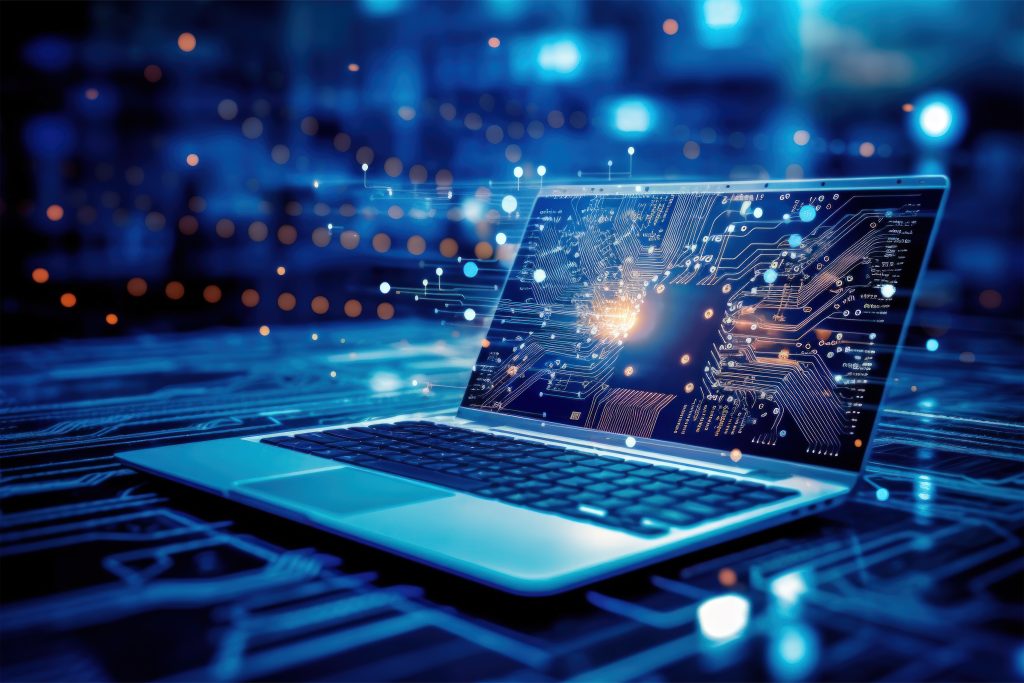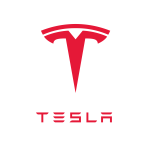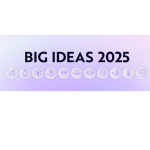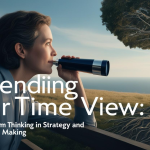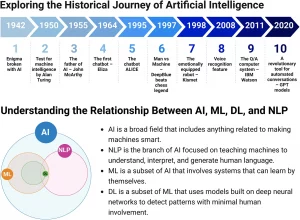Here’s the translation of the provided Italian text into English:
Do you know that Artificial Intelligence that we hear so much about? The one that seems almost like science fiction? Well, you’ll be surprised to know that AI might be our savior instead of destroying the world. Yes, you heard right!
So, what exactly is this AI everyone talks about? It’s a kind of computer program that, through math and software code, is trained to understand, synthesize, and generate knowledge, just like a person would. It can be used in many fields, from programming to medicine, from law to the creative arts. AI is in the hands of people and is controlled by them, just like any other technology.
But let’s be clear about what AI is NOT. We’re not talking about killer machines or robots that come to life and decide to exterminate humanity, as happens in movies. That’s just fiction. In reality, AI could improve many things that matter to us.
Imagine if every child had an AI tutor that followed them through every stage of their growth, helping them maximize their potential. Every person would have an AI assistant by their side in every challenge and opportunity of life, helping them achieve the best possible results. Scientists, artists, engineers, entrepreneurs, doctors, and many others would have an AI as an assistant, collaborator, or partner to enhance their capabilities.
Imagine how economic productivity could soar if AI were widespread in all areas. This would lead to the creation of new industries, new jobs, and greater prosperity worldwide. Scientific discoveries and new technologies would expand considerably, allowing us to better understand the laws of nature and exploit them to our advantage.
But it doesn’t end there. The creative arts would experience a golden age thanks to AI. Imagine artists, musicians, writers, and directors who, with the assistance of AI, could realize their visions more quickly and effectively than ever before.
So why is there so much panic about AI? Why do we hear about dystopias and imminent dangers? Well, historically every time a major new technology emerged, there was some panic. For example, when electricity or the automobile was introduced, there was much fear and concern. The same thing is happening now with AI.
Of course, there are legitimate concerns to address, but we must be careful not to fuel hysteria. This moral panic can hinder our ability to seriously address the real issues related to AI.
It’s important to carefully consider the intentions of those who use the panic around AI to call for government restrictions and regulations. We mustn’t get carried away by the panic, but we must carefully assess whether these restrictions are truly necessary or if they could hinder the development and benefits of AI.
The opportunities offered by AI are immense, and developing and spreading it is our moral duty to ourselves, our children, and our future. Imagine a better world thanks to AI, a world where we can tackle challenges that seemed impossible until recently, such as curing all diseases or interstellar travel. In addition to its benefits in terms of intelligence, AI also has great humanizing potential. It can allow people without technical skills to express their artistic ideas and can help people cope with adversity.
So instead of panicking, let’s make the most of the opportunities offered by AI. AI could be the most significant thing we’ve ever created, on par with electricity and microchips, if not beyond. We must embrace AI and ensure it’s a tool in the service of human well-being. We are on the brink of a new era full of possibilities, and it’s up to us to seize them.
I have a straightforward plan to propose for the responsible use of Artificial Intelligence (AI). We must allow large AI companies to develop this technology quickly and aggressively, but without creating regulations that isolate them from market competition. These companies are real gems in the landscape of modern capitalism, and maximizing their potential will bring us enormous technological and social benefits.
On the other hand, AI startups should be free to build and develop this technology quickly and ambitiously. They shouldn’t enjoy protective advantages from large companies or receive government aid. We must allow them to compete in the market without restrictions. If a startup succeeds, that’s great. If they don’t achieve the hoped-for results, their presence in the market will continue to push large companies to do their best. In both cases, our economies and societies will benefit.
Additionally, we should encourage free dissemination and competition in the realm of open-source AI. There should be no regulatory obstacles for open source. Even if open-source AI doesn’t surpass the big companies, its widespread availability will benefit students worldwide wanting to learn how to build and use AI. Also, it will ensure that AI is accessible to anyone who can benefit from it, regardless of their identity or financial situation.
To prevent the abuse of AI by malicious individuals, governments must collaborate with the private sector to use this technology for defensive purposes and address global challenges. It’s not just about mitigating the risks associated with AI but also about addressing broader issues like malnutrition, disease, and climate change. AI can be a powerful tool for solving such problems, and we must make the most of it.
Lastly, to prevent totalitarian states from becoming dominant in the AI arena globally, we must unite the forces of the private sector, the scientific community,
and democratic governments to ensure AI’s responsible and ethical use. It’s essential to avoid allowing AI to become a tool of repression and ensure it’s used to improve the human condition.
To conclude, I’d like to say that Artificial Intelligence has the potential to reshape our world in ways we can’t even imagine. It’s crucial to be proactive and ensure its benefits are widespread while minimizing potential risks. If we take the right steps, AI could become one of the greatest gifts of the 21st century. But if we succumb to panic and react out of fear, we risk losing out on these incredible opportunities. The choice is ours.

